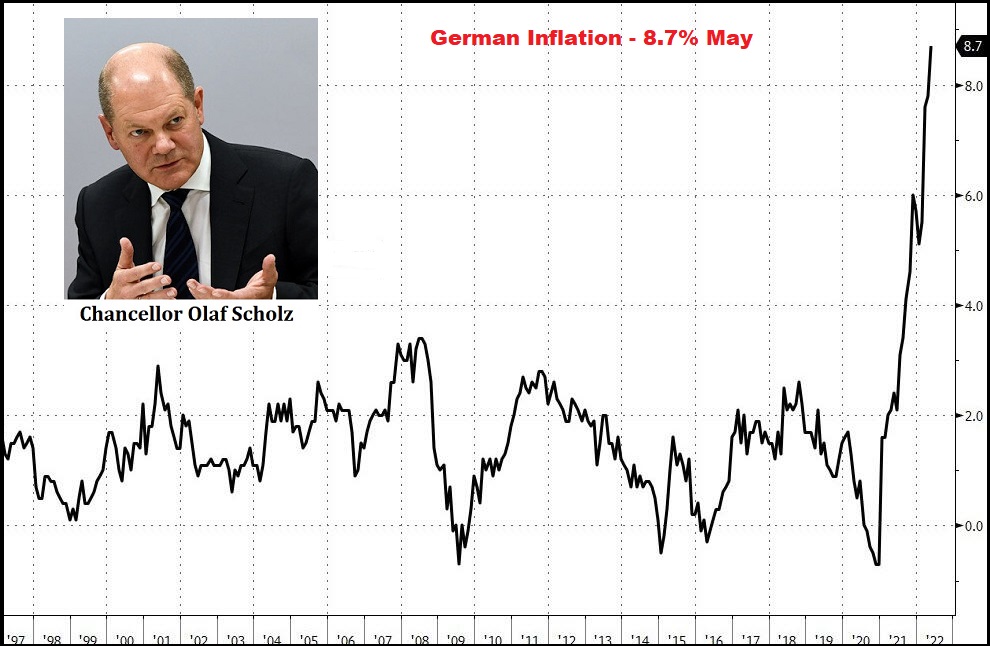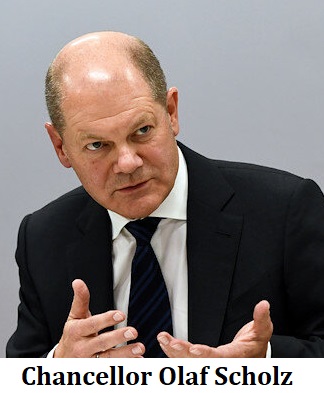Germany is the central and largest economy within the European Union; it is also the most influential for anything related to the response from the European Central Bank and EU Central Bank President Christine Lagarde. Today, Germany is reporting a massive (unexpected) jump in overall inflation for May of 8.7%, up from the previous month’s 7.8%.

Ironically, it was a little more than a month ago when EU Central Bank President Christine Lagarde said she did not expect the EU inflation to be quite as bad as the U.S. inflation crisis due to the EU spending less on COVID relief and focusing on employment retention. This was the ECB justification for not raising interest rates until later this summer. Obviously Lagarde has joined Jerome Powell in the room filled with bad financial decisionmakers.
Germany is the largest and most influential economy inside the EU. If the German economy falters, the entire EU slips into a recession. The massive inflation now being reported by Germany, that continues climbing each month, will increase the urgency for of Lagarde to raise rates. They too are in the inflation spiral, and this issue will quickly fracture the EU response to Ukraine.
(Via Reuters) – […] German consumer prices, harmonised to make them comparable with inflation data across the European Union, increased to 8.7% from 7.8% a month earlier, well ahead of expectations for 8%, data from the Federal Statistics Office showed on Monday.
 The inflation rate is being driven mostly by energy costs which are more than 80% higher than last year. However, each nation’s overall inflation rate is also driven by the amount of central bank spending they used during the COVID economic lockdowns. The more any govt spent on subsidies, the more money they printed, the more they devalued their money and subsequently, the higher their current rate of inflation.
The inflation rate is being driven mostly by energy costs which are more than 80% higher than last year. However, each nation’s overall inflation rate is also driven by the amount of central bank spending they used during the COVID economic lockdowns. The more any govt spent on subsidies, the more money they printed, the more they devalued their money and subsequently, the higher their current rate of inflation.